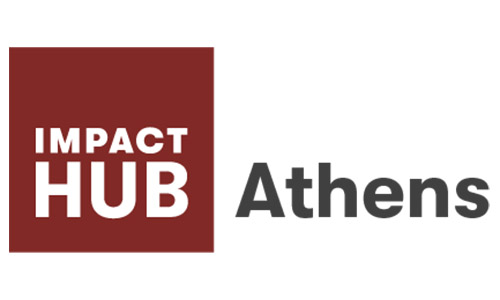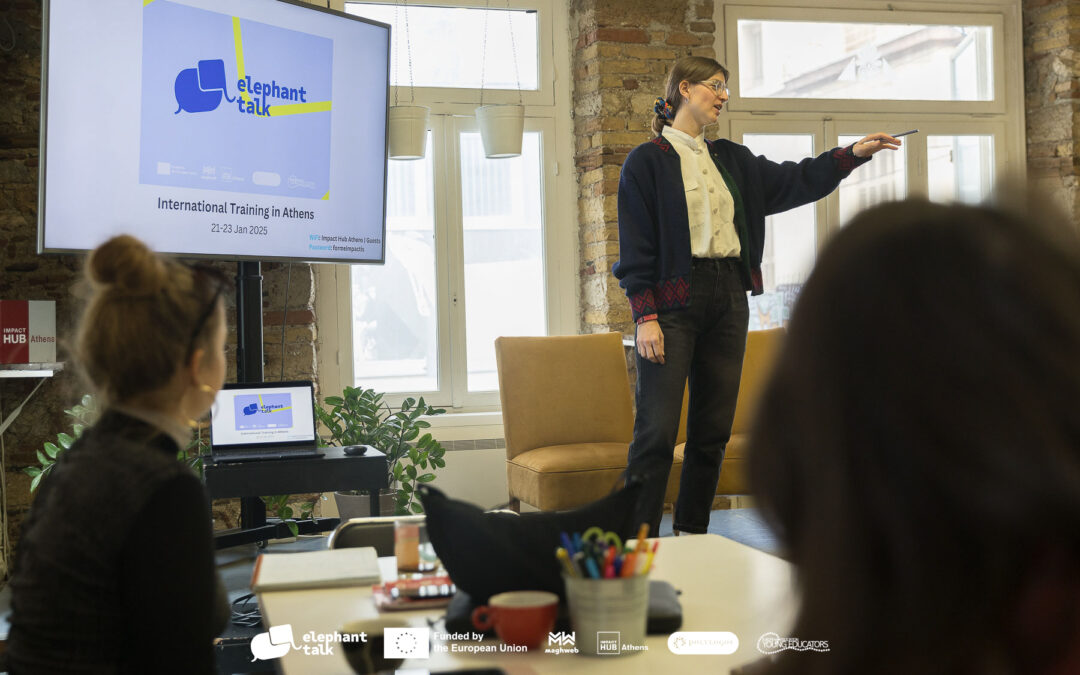The three-day International Training in Athens, the second of its series for the Elephant Talk project, provided a unique opportunity for 27 youth workers, civic educators, and professionals to enhance their skills in data gathering and visualization, with a specific focus on online gender-based hate speech. As the second training in the series, it built upon the foundational knowledge gained during the previous sessions held in Palermo, where participants explored data collection methodologies and ethical considerations. The Athens training placed greater emphasis on data visualization techniques, aiming to consolidate methodologies, pilot data collection tools, and equip participants with practical skills to effectively present and interpret data for future actions.
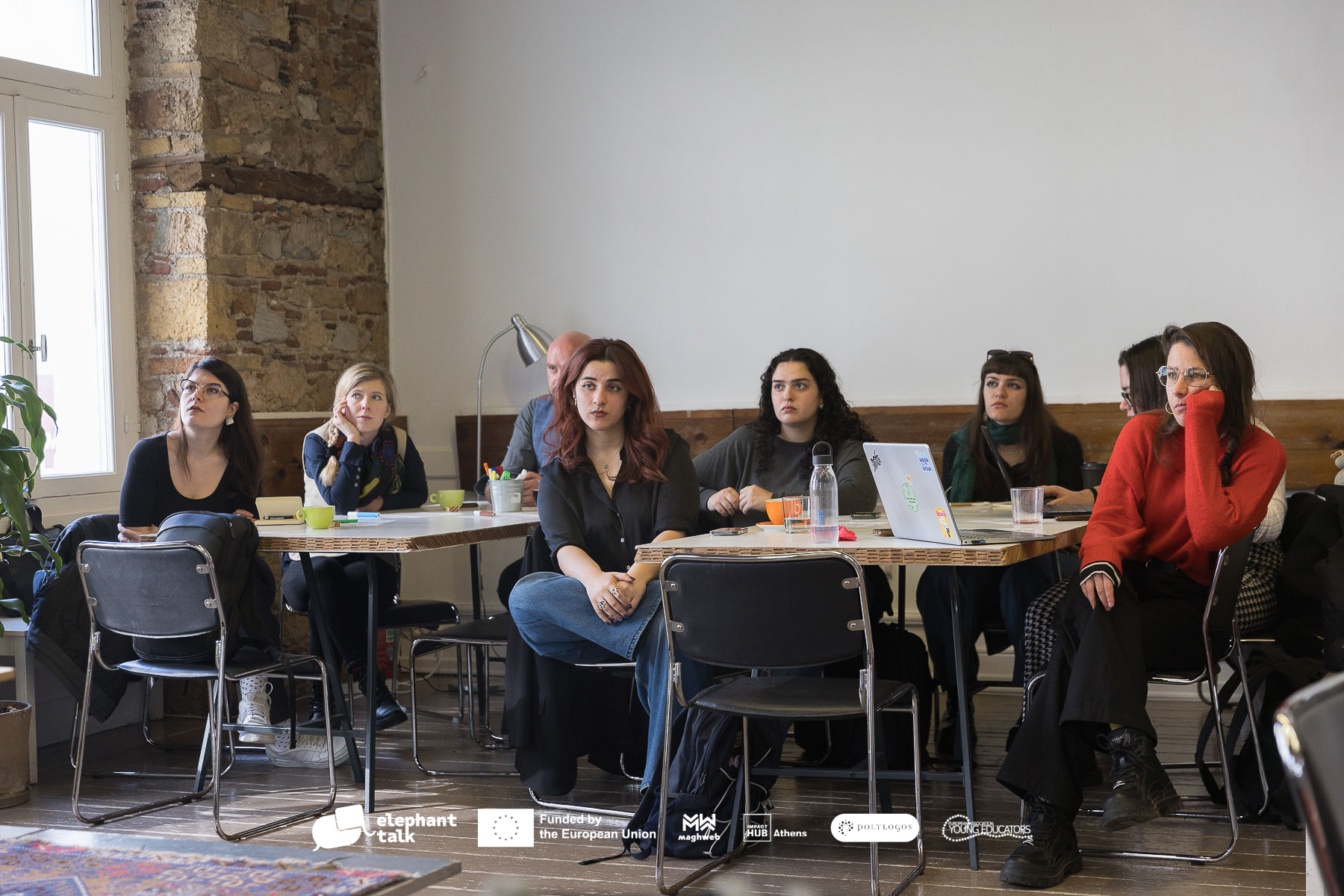
Day 1: Data Gathering Methodologies – Theory and Practice
The first day, led by Impact Hub Athens, began with an engaging welcome session, including an interactive icebreaker activity. Participants were introduced to the program’s objectives and reflected on key takeaways from the Palermo training. The day focused on reviewing and refining data gathering methodologies through practical exercises, including the pilot testing of the questionnaire that all project partners will use with young people as part of the data gathering process, providing an opportunity to refine and ensure its effectiveness through hands-on experimentation.
Key activities included:
- A visualisation and expectation activity encouraging peer learning.
- Completing and analyzing the pilot questionnaire to assess effectiveness.
- A session on translating the questionnaires to the local languages, making them contextually relevant
In the afternoon, a session, led by a Data visualisation expert and Journalist, provided insights into digital data gathering methodologies, exploring theoretical frameworks and practical applications, such as web scraping, API use, and data ethics. Participants examined the power dynamics of online data, challenges posed by anonymity, and the impact of social media algorithms in amplifying online hate speech.
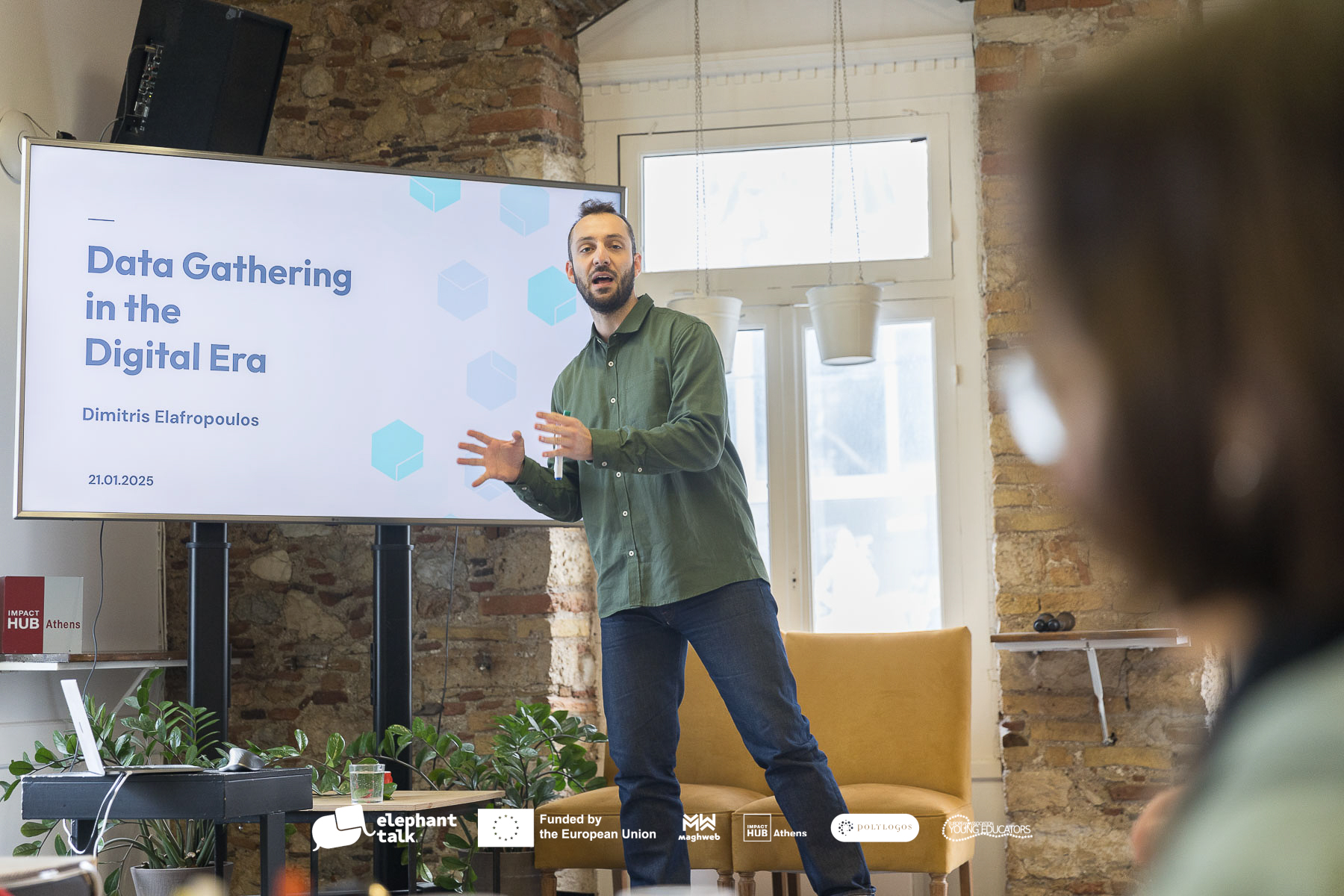
Day 2: Visualising Data for Social Transformation
The second day focused on turning data into compelling narratives. Led by Impact Hub and an expert on Data visualisation and Production, the morning session introduced participants to key data visualization concepts and tools, showcasing impactful examples from Greece and beyond, such as Forensic Architecture’s investigative work and grassroots advocacy campaigns.
In the afternoon, practical sessions allowed participants to work in teams and create outputs using various digital tools. Divided into three groups, participants developed:
- Social media posts using Canva and Flourish.
- AI-assisted animation explainers via Renderforest.
- A mini-podcast discussing key findings from the previous day’s data gathering.
Participants gained hands-on experience with data visualization tools, learned to tailor content for diverse audiences, and discussed strategies to ensure accessibility and inclusivity in their outputs. The outcomes were highly commendable and served as a valuable resource for co-creation and peer learning.
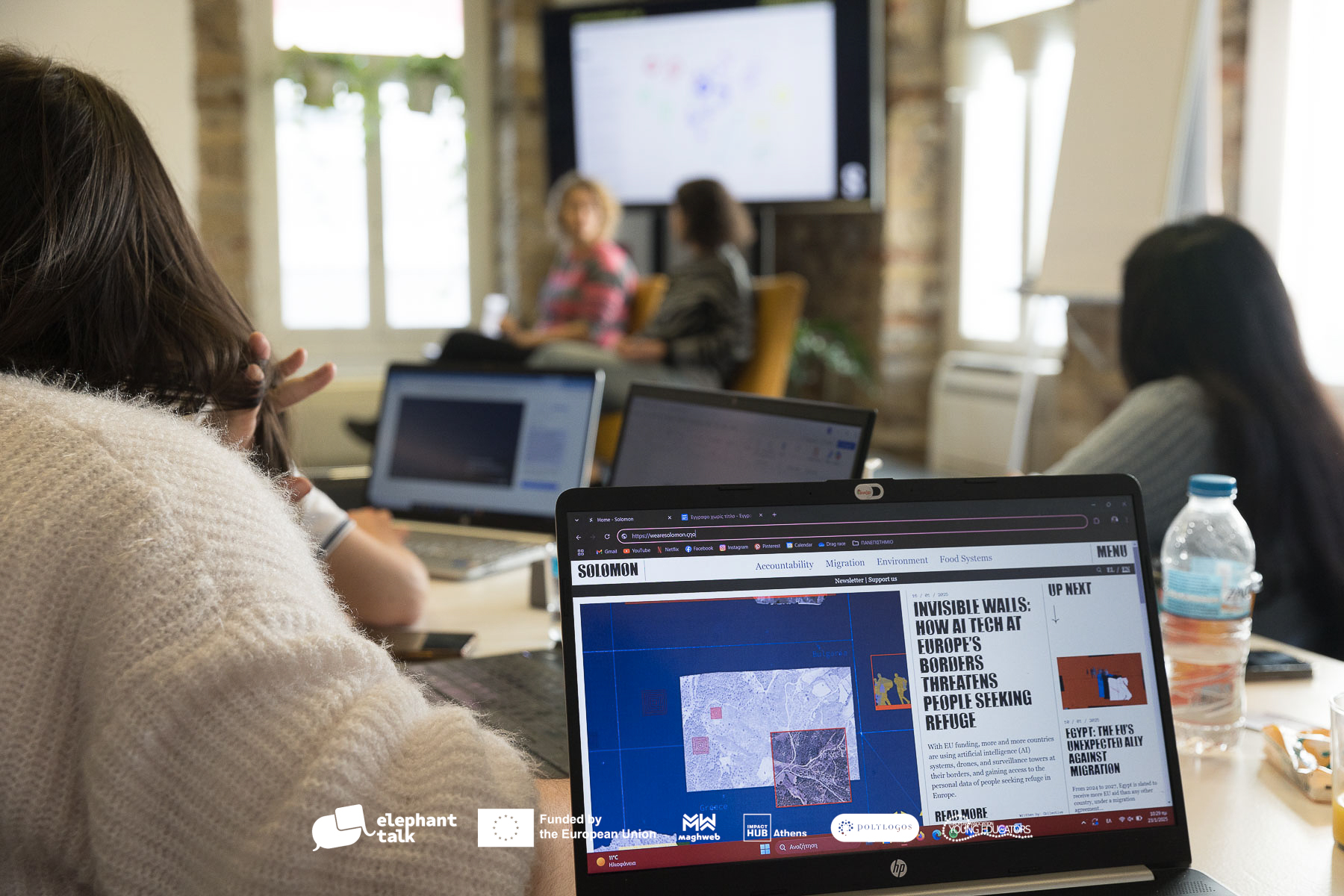
Day 3: Finalization and National Action Plans
The final day focused on consolidating learning and preparing for the next phase of the project. Guest speakers from an investigative journalism group presented a comprehensive research and visualisation on media ownership in Greece, offering insights into data-driven storytelling and visualization techniques.
Key activities included:
- Reviewing and finalizing the data gathering methodology, integrating lessons learned from previous sessions.
- Developing national action plans, with step-by-step guidance tailored to each cultural context.
- Planning for the International Data Presentation Event at the EU Parliament, discussing engagement strategies with MEPs and potential advocacy actions.
The training concluded with participants completing an EU survey and engaging in a feedback session to refine their approaches and ensure alignment with project objectives.
Overall, the training served as an essential capacity-building opportunity, equipping participants with the tools and confidence to collect, analyze, and visualize data to combat online gender-based hate speech. The sessions fostered cross-border collaboration, empowering participants to implement meaningful actions in their respective communities.
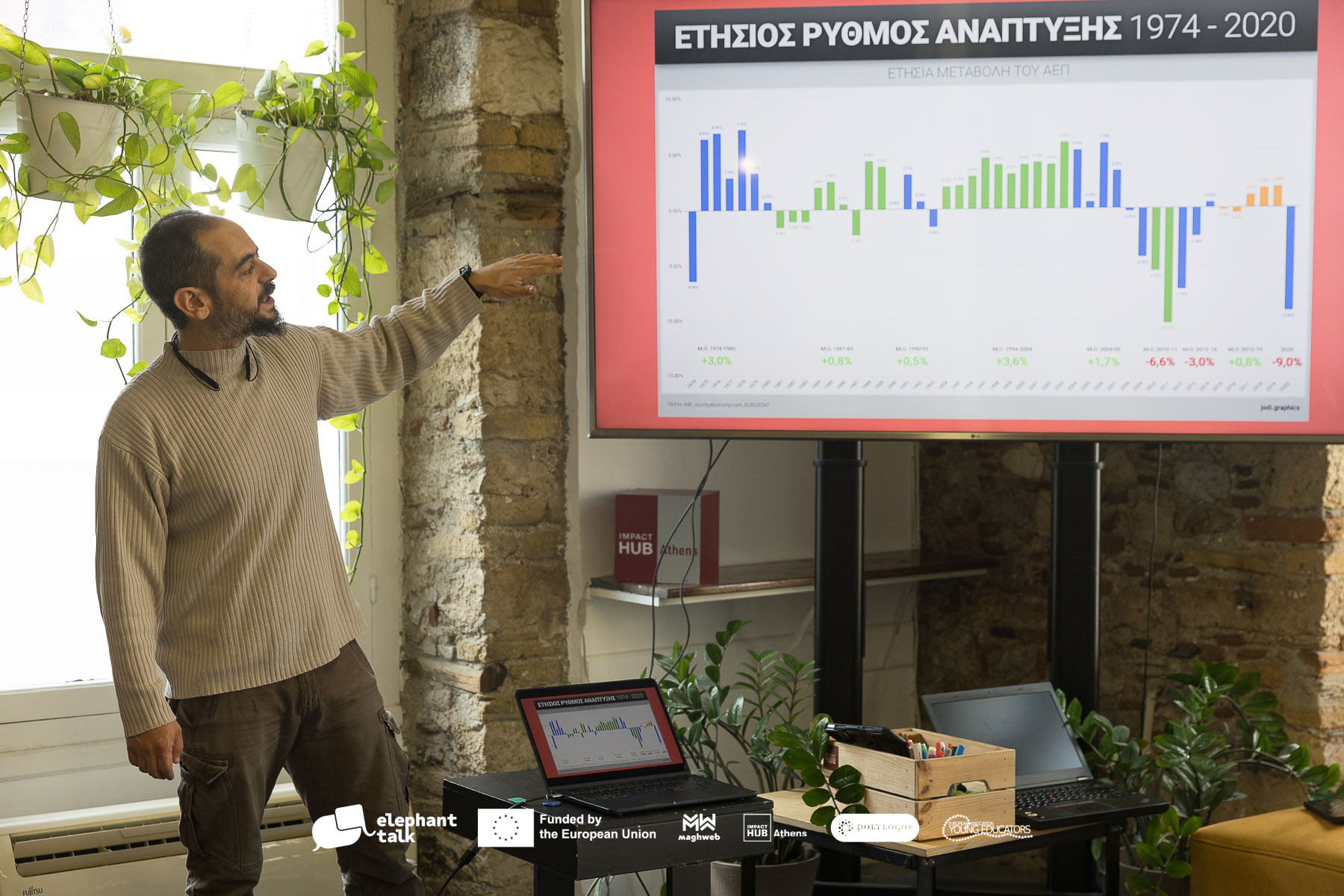
Read and download the Work Package with the agenda of the days carried out within the framework of the European Union programme ‘Citizens, Equality, Rights and Values.
Event Description Form -WP2
Training Agendas

Funded by the European Union. Views and opinions expressed are however those of the author(s) only and do not necessarily reflect those of the European Union or the European Education and Culture Executive Agency (EACEA). Neither the European Union nor EACEA can be held responsible for them.


